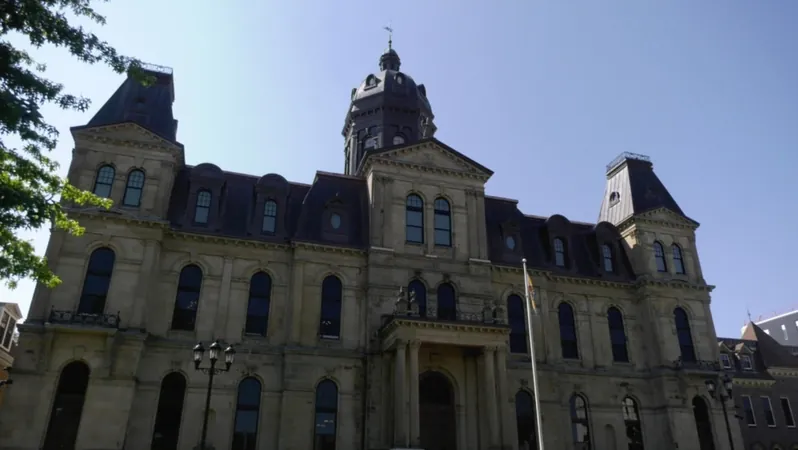
New Brunswick Liberal Government Revamps Policy 713: A Game-Changer for Student Rights!
2024-12-19
Author: Liam
Introduction
In a significant policy reversal, the New Brunswick Liberal government is making waves by revising Policy 713, a decision that impacts the rights of students to use their chosen names and pronouns in schools.
New Guidelines Overview
Under the new guidelines announced by Education Minister Claire Johnson, students aged 16 and older will now have full autonomy regarding their preferred names and pronouns, without requiring parental consent for either informal or formal usage.
Meanwhile, for students under 16, parental awareness is encouraged for informal usage, though formal use still mandates parental consent.
Emphasis on Self-Identification
“We believe that all students have the right and presumed capacity to self-identify,” the updated policy states, ensuring that school staff will respect and consistently use the chosen names and pronouns of students.
Johnson emphasized the importance of communication, wishing to foster a 'tone of transparency and dialogue' between schools and families.
Support for Students and Families
One of the most notable changes is the expectation for families to be involved in such decisions. However, if a student feels uncomfortable sharing this information with their parents, support plans will be developed to facilitate the process when the student is ready, showcasing a compassionate approach towards student welfare.
Background to Policy Changes
This policy update arises in the wake of contentious changes instituted by the previous Progressive Conservative government, which forced students under 16 to seek parental permission to use their desired names and pronouns.
In response to these changes, a wave of dissent emerged among lawmakers, resulting in several MLAs leaving the caucus and threatening an early election.
The Anglophone East School District Education Council even launched a lawsuit against the government, a situation that only recently reached resolution.
Inclusivity in Facilities
Another aspect of the revamped Policy 713 is the commitment to ensure all schools feature at least one accessible, universal washroom facility, emphasizing inclusivity for all students irrespective of gender.
Political Commitment and Future Actions
The Liberals had promised to address these contentious issues in their election campaigns leading up to the provincial contest in October.
Johnson noted, 'We’ve been discussing this for a long time, and it has become a crucial issue for New Brunswickers.'
Implementation and Training
The new policies are slated to take effect on January 1, 2025.
Meanwhile, Peter Lagacy, president of the New Brunswick Teachers' Association, has urged the province to provide adequate training and resources to ensure educators can interpret and implement these changes smoothly.
'Teachers want to create safe, inclusive environments for all students,' he said, signaling a commitment to work collaboratively with families and educational professionals.
Conclusion and Community Response
With these progressive changes, New Brunswick is setting a precedent for a more inclusive educational landscape — but the question remains: How will communities respond? As this pivotal date approaches, educators, students, and parents must prepare for the transformative impact of Policy 713.









 Brasil (PT)
Brasil (PT)
 Canada (EN)
Canada (EN)
 Chile (ES)
Chile (ES)
 España (ES)
España (ES)
 France (FR)
France (FR)
 Hong Kong (EN)
Hong Kong (EN)
 Italia (IT)
Italia (IT)
 日本 (JA)
日本 (JA)
 Magyarország (HU)
Magyarország (HU)
 Norge (NO)
Norge (NO)
 Polska (PL)
Polska (PL)
 Schweiz (DE)
Schweiz (DE)
 Singapore (EN)
Singapore (EN)
 Sverige (SV)
Sverige (SV)
 Suomi (FI)
Suomi (FI)
 Türkiye (TR)
Türkiye (TR)